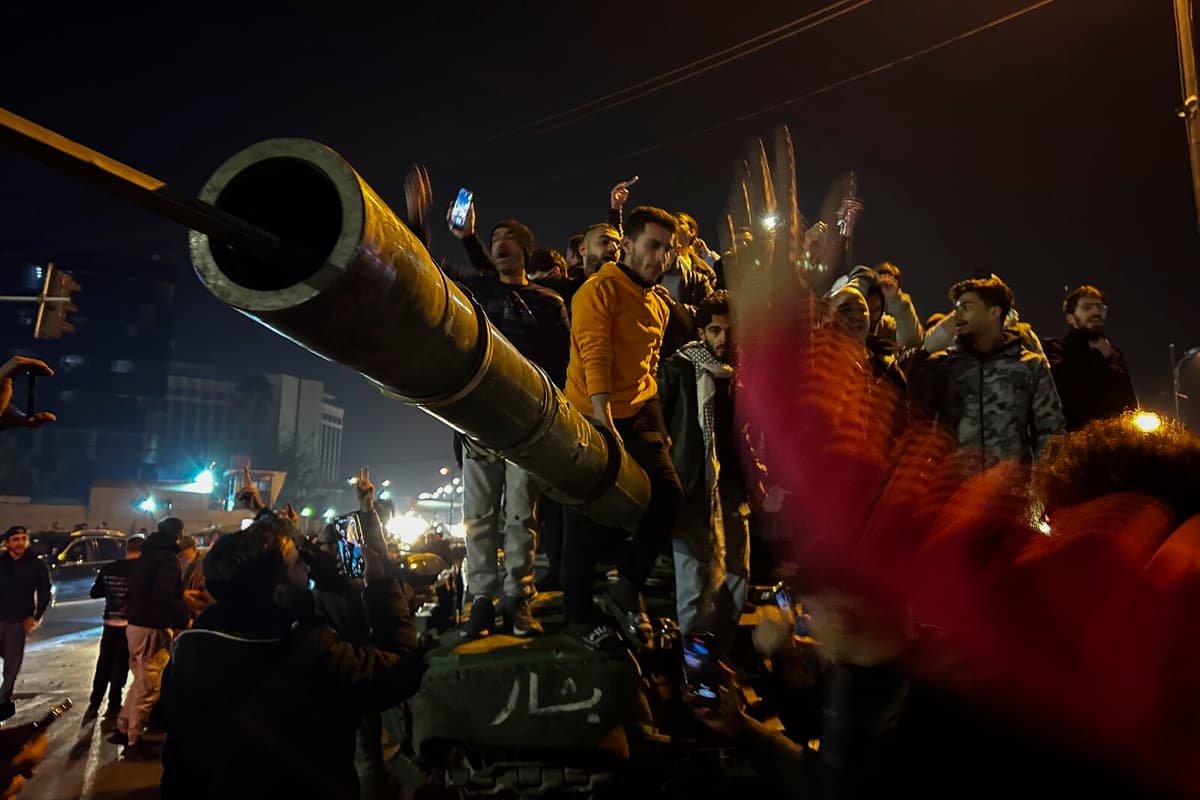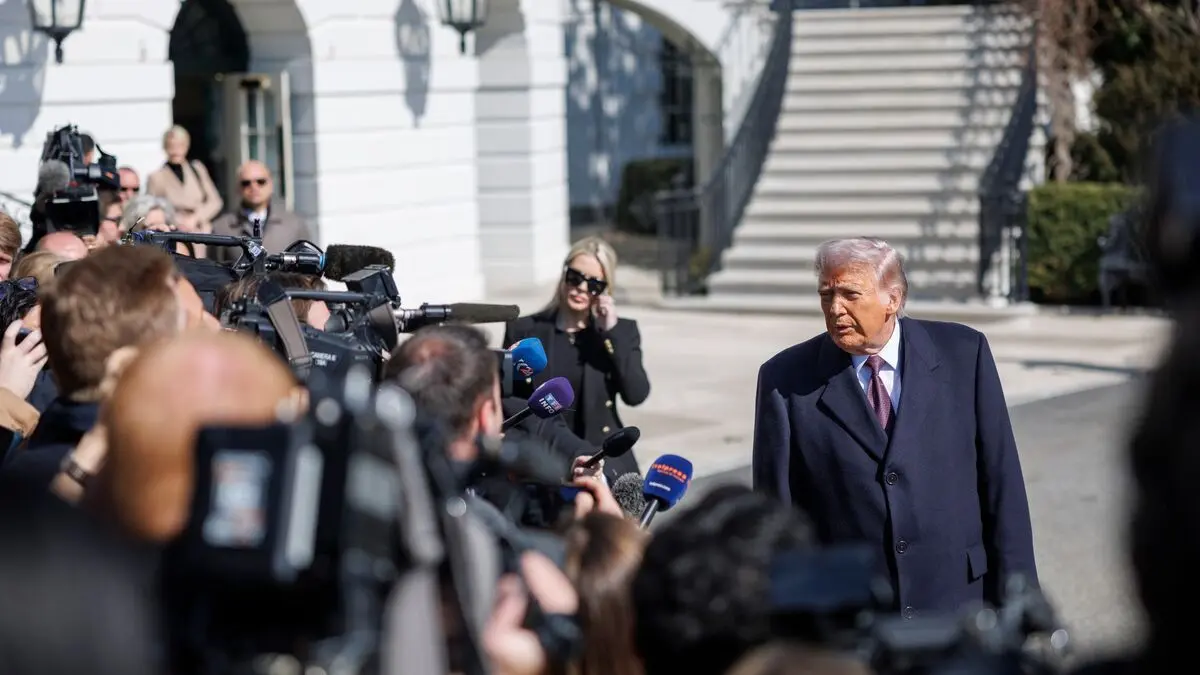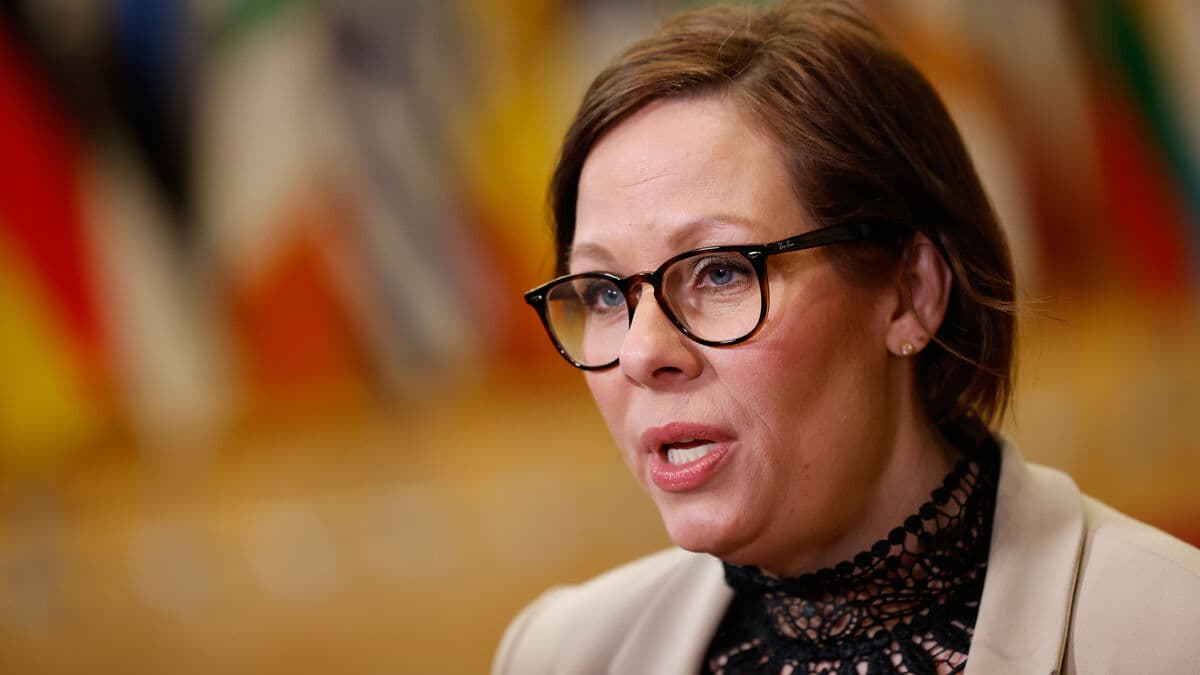Syrian rebels impose curfew in Damascus between 4 pm and 5 am local time, reports Sky News.
Historic scenes are unfolding in Damascus where a statue of Bashar al-Assad's hardline father Hafez has been toppled. Few expected the uprising against the regime to progress so quickly. Gunfire was heard in the city during the night, but in the morning, people welcoming the rebels' entry took to the streets to celebrate.
Early on Sunday, HTS declared Damascus free from the "tyrant" Bashar al-Assad. In a broadcast from the state TV studio, citizens and fighters are urged to protect property belonging to the "free" Syrian state, reports AFP.
In a rebel statement on Telegram, it is stated that the regime has fallen "after 50 years of oppression".
Ready to Cooperate?
Bashar al-Assad is reported to have left Damascus in a plane as jihadist forces entered the capital, according to the Syrian Observatory for Human Rights (SOHR) in the UK. The destination is unknown. The regime's security forces then abandoned the international airport.
The regime's Prime Minister Mohammed al-Jalali says he is ready to "cooperate" and hand over power – but only to a leadership chosen by the people. He claims not to know where al-Assad or the defense minister have gone.
The rebels seem to be heeding this:
"For all military forces in the city of Damascus, it is strictly forbidden to approach public institutions, which will remain under the supervision of the former prime minister until they are officially handed over," announces HTS leader Ahmed al-Sharaa.
Freed Prisoners
Prisoners in the notorious Saidnaya prison north of Damascus have been released during the advances, according to HTS. Bashar al-Assad and his regime have been accused of widespread torture and murder of opposition figures in the military prison during the Syrian civil war.
The Iran-backed Shia militia Hezbollah, a close ally of al-Assad's regime, has also withdrawn its forces from Damascus and Homs, reports AFP. They are said to have been instructed to head to Lebanon and the Latakia area on the Syrian coast. Israel has strengthened its military presence in border areas.
The terrorist-listed extremist group HTS, which has now entered Damascus, launched the surprising offensive last week, where first the major city of Aleppo and then several other cities fell.
HTS claims on Sunday that its forces are also advancing west of the Euphrates River in the province of Dayr al-Zor (Deir Ezzor) in the east. The area was previously controlled by regime forces, while Kurdish-led forces controlled the eastern side of the river.
Syria is a relatively young state, founded in an area where humans have lived for thousands of years – both the capital Damascus and Aleppo rank among the world's oldest cities.
The country has waged war against Israel several times since the end of the 1940s and briefly formed the United Arab Republic with Egypt and the Gaza Strip in the late 1950s.
After several coups in the 1960s, the al-Assad family took power, first with father Hafez al-Assad and after his death in 2000, son Bashar al-Assad. The latter has managed to hold onto the presidency until now, despite a devastating civil war ravaging large parts of the country, largely due to support from Russia, Iran, and Iran-backed Shia militias in the region. The war was triggered by protests during the Arab Spring in 2011. Turkey has supported certain opposition groups in northwestern Syria for several years.






